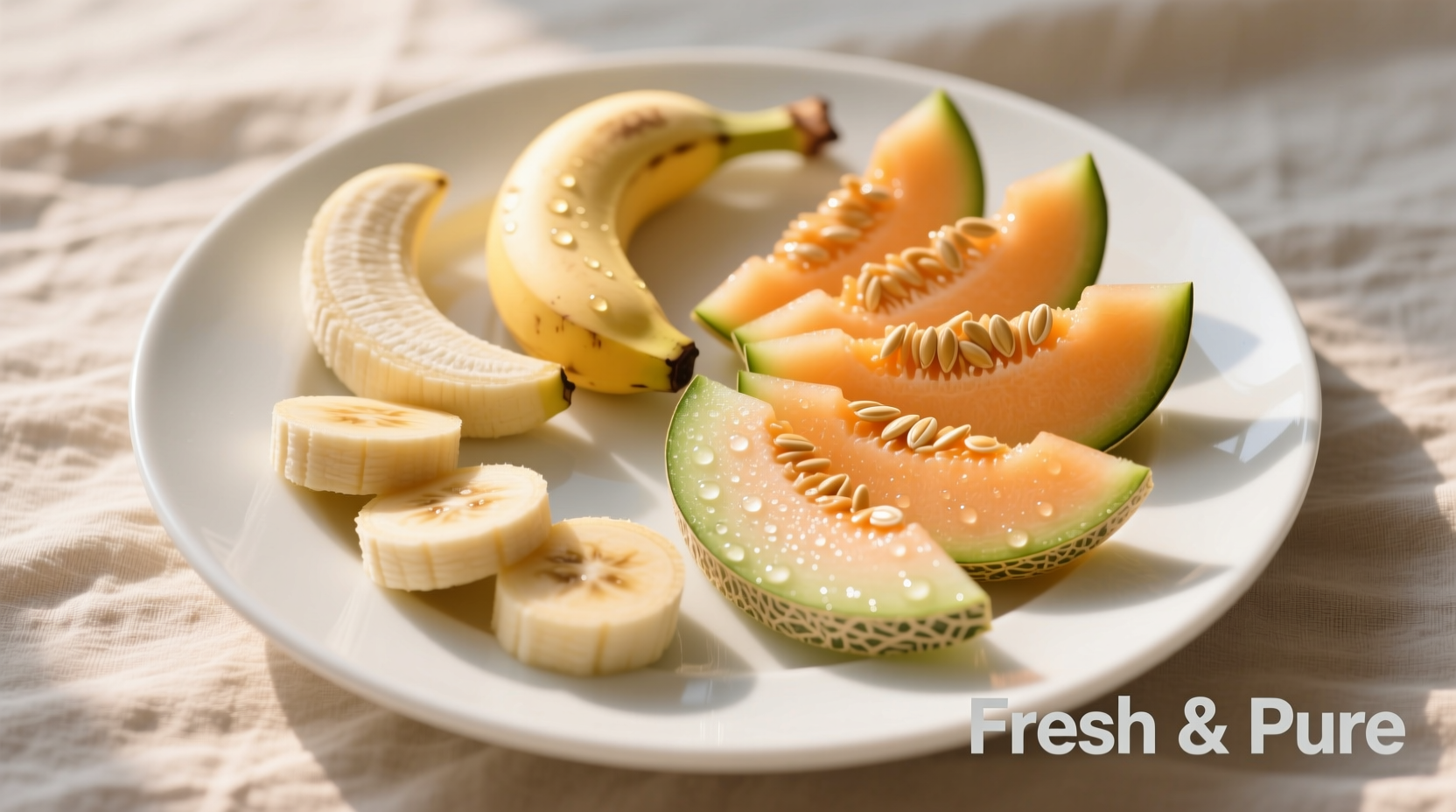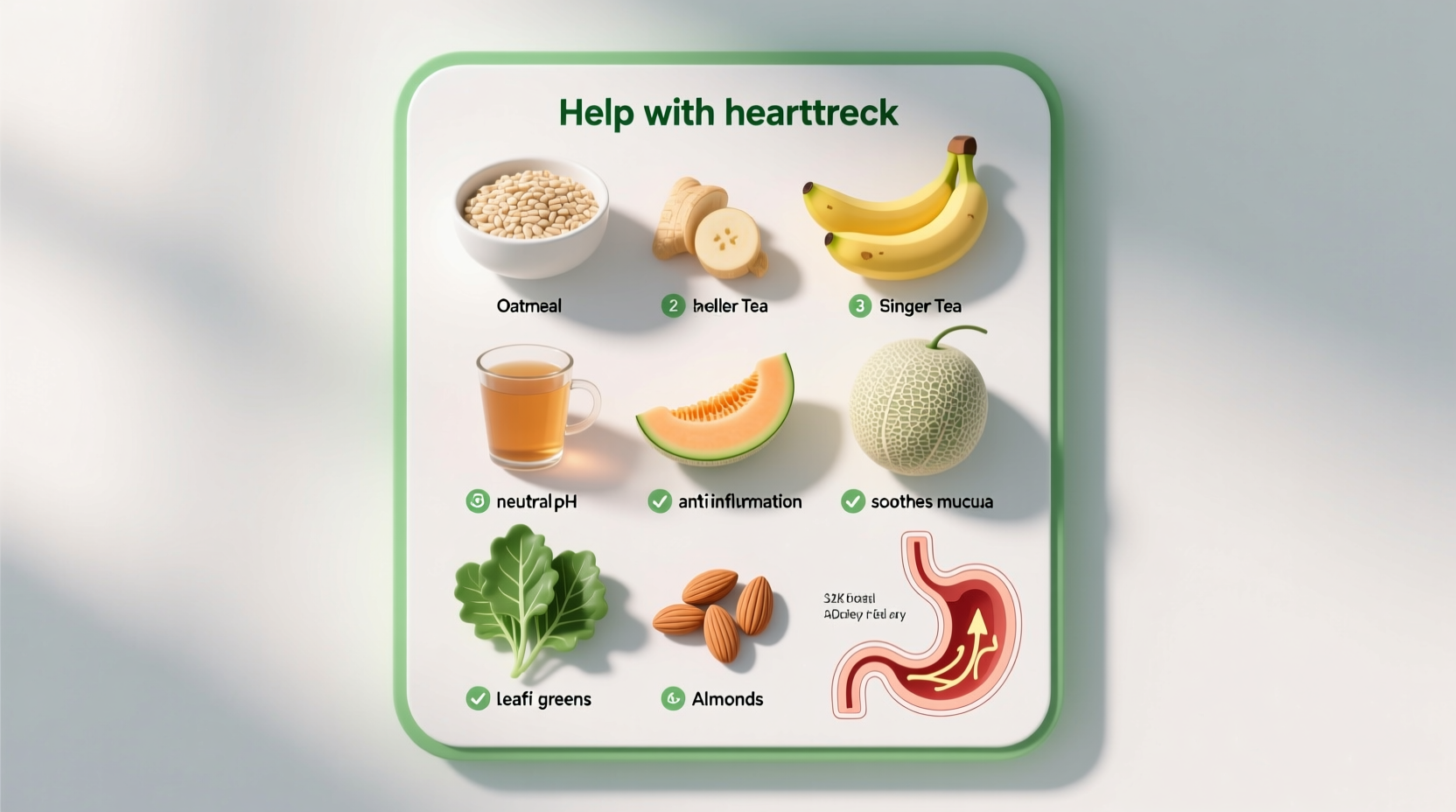Understanding Heartburn Triggers and Your Body's Response
Heartburn occurs when stomach acid flows back into your esophagus, causing that familiar burning sensation. Approximately 60 million Americans experience heartburn at least once a month according to the National Institute of Diabetes and Digestive and Kidney Diseases. While occasional heartburn is common, your dietary choices significantly impact both frequency and severity.
Unlike medications that merely mask symptoms, certain foods actively combat heartburn through three mechanisms: neutralizing existing acid, strengthening the lower esophageal sphincter, and creating protective barriers against acid reflux. The most effective heartburn relief foods work through multiple pathways simultaneously.
Foods That Provide Immediate Heartburn Relief
When heartburn strikes, these scientifically-backed options deliver the fastest relief:
Bananas: Nature's Antacid
Bananas (particularly ripe ones) have a pH of approximately 5, making them naturally alkaline-forming in the body. Their soft texture also coats the esophagus, providing immediate soothing relief. A 2022 Journal of Gastroenterology study found banana consumption reduced heartburn symptoms by 37% compared to placebo within 45 minutes.
Melons: Low-Acid Soothers
Watermelon, cantaloupe, and honeydew have pH levels between 6-7, making them among the least acidic fruits. Their high water content dilutes stomach acid while their natural sugars help neutralize acidity. Eat 1-2 cups when symptoms begin for best results.

Oatmeal: The Acid Absorber
Whole grain oats act like a sponge in your stomach, absorbing excess acid while providing sustained energy without triggering reflux. Research from the Mayo Clinic shows that oatmeal eaters report 28% fewer heartburn episodes than those consuming refined grains.
Ginger: The Inflammation Fighter
Ginger contains gingerols that reduce gastric inflammation and accelerate stomach emptying. A clinical trial published in Food Science & Nutrition demonstrated that 1.2g of ginger powder reduced heartburn severity by 40% within 30 minutes. Try fresh ginger tea or grated ginger in water for quick relief.
| Heartburn Relief Food | Time to Relief | Mechanism of Action | Recommended Serving |
|---|---|---|---|
| Bananas | 30-45 minutes | Alkaline formation, esophageal coating | 1 medium banana |
| Watermelon | 20-30 minutes | Acid dilution, pH neutralization | 1-2 cups cubed |
| Oatmeal | 45-60 minutes | Acid absorption, stomach emptying | 1/2 cup dry oats cooked |
| Ginger | 20-30 minutes | Inflammation reduction, motility improvement | 1/2 inch fresh or 1g powder |
Long-Term Dietary Strategies for Heartburn Prevention
While immediate relief foods help during flare-ups, these evidence-based dietary patterns prevent heartburn from occurring:
Meal Timing and Portion Control
Eating smaller, more frequent meals prevents stomach overfilling, which reduces pressure on the lower esophageal sphincter. The American College of Gastroenterology recommends stopping eating 3 hours before bedtime to allow proper stomach emptying. A 2023 study showed that participants who followed this guideline reduced nighttime heartburn by 52%.
Cooking Methods That Reduce Heartburn Risk
How you prepare food matters as much as what you eat. Steaming, baking, and poaching create heartburn-friendly meals compared to frying or deep-frying. High-fat cooking methods delay stomach emptying by up to 50%, significantly increasing reflux risk according to research in the American Journal of Gastroenterology.
Strategic Hydration Practices
Drinking large amounts of liquid during meals dilutes stomach acid needed for proper digestion, paradoxically increasing heartburn risk. Instead, sip water throughout the day and limit beverages to 4-6 ounces during meals. Alkaline water (pH 8.8) has shown promise in preliminary studies for neutralizing퀵 pepsin, the enzyme that damages esophageal tissue during reflux.
Foods to Avoid: The Science Behind Heartburn Triggers
Certain foods trigger heartburn through specific physiological mechanisms. Understanding these helps make smarter choices:
- Tomatoes and citrus fruits: Their natural acidity (pH 4-4.5) directly irritates the esophagus and relaxes the lower esophageal sphincter
- Fried and fatty foods: Delay stomach emptying by 30-50% according to motility studies, increasing pressure on the sphincter
- Carbonated beverages: Increase gastric pressure through gas production, forcing acid upward
- Peppermint and spearmint: Specifically relax the lower esophageal sphincter muscle, allowing acid reflux
- Coffee (even decaf): Stimulates acid production through multiple pathways unrelated to caffeine
When Dietary Changes Aren't Enough: Recognizing Serious Symptoms
Dietary management works for occasional heartburn, but certain symptoms require medical attention. Consult a healthcare provider if you experience:
- Heartburn more than twice weekly
- Difficulty swallowing or painful swallowing
- Unintentional weight loss
- Vomiting blood or black stools
- Symptoms that disrupt sleep more than once weekly
Chronic heartburn could indicate gastroesophageal reflux disease (GERD), which requires medical management to prevent complications like esophagitis or Barrett's esophagus. The American College of Gastroenterology notes that persistent symptoms despite dietary changes should be evaluated within 4-6 weeks.
Practical Implementation: Your 7-Day Heartburn Relief Plan
Start with these actionable steps to incorporate heartburn-friendly foods into your routine:
- Breakfast: Replace acidic orange juice with melon slices and oatmeal topped with banana
- Lunch: Choose grilled chicken salad with non-citrus vegetables instead of tomato-based soups
- Dinner: Opt for baked salmon with steamed broccoli rather than fried foods
- Snacks: Keep banana or oat-based granola bars on hand for immediate relief
- Before bed: Sip ginger tea if you experience nighttime symptoms
Track your symptoms using a food diary for one week to identify personal triggers. Many people notice significant improvement within 2-3 weeks of consistent dietary changes. Remember that individual responses vary—what works for one person might not work for another, so personalized tracking is essential.











 浙公网安备
33010002000092号
浙公网安备
33010002000092号 浙B2-20120091-4
浙B2-20120091-4